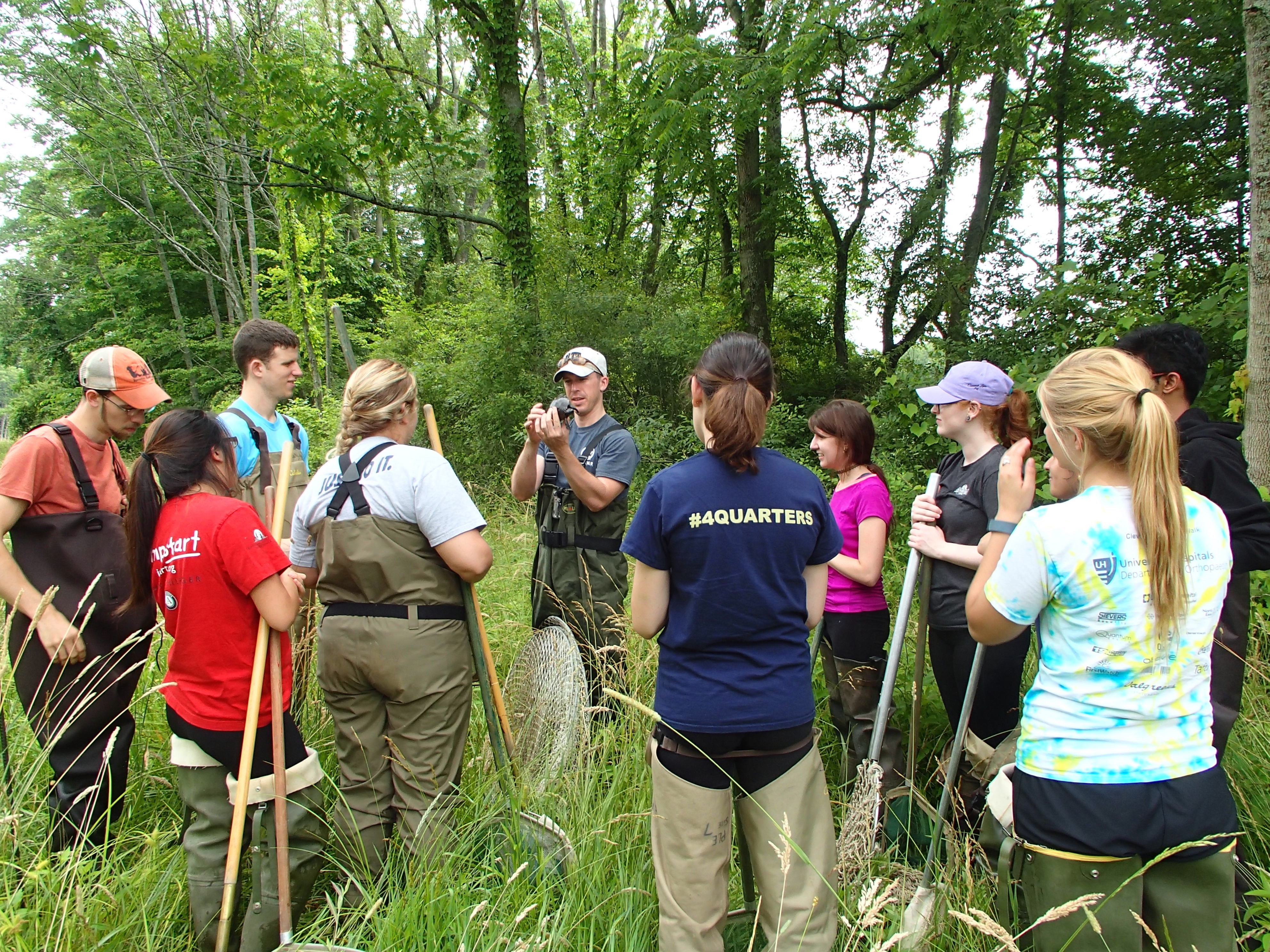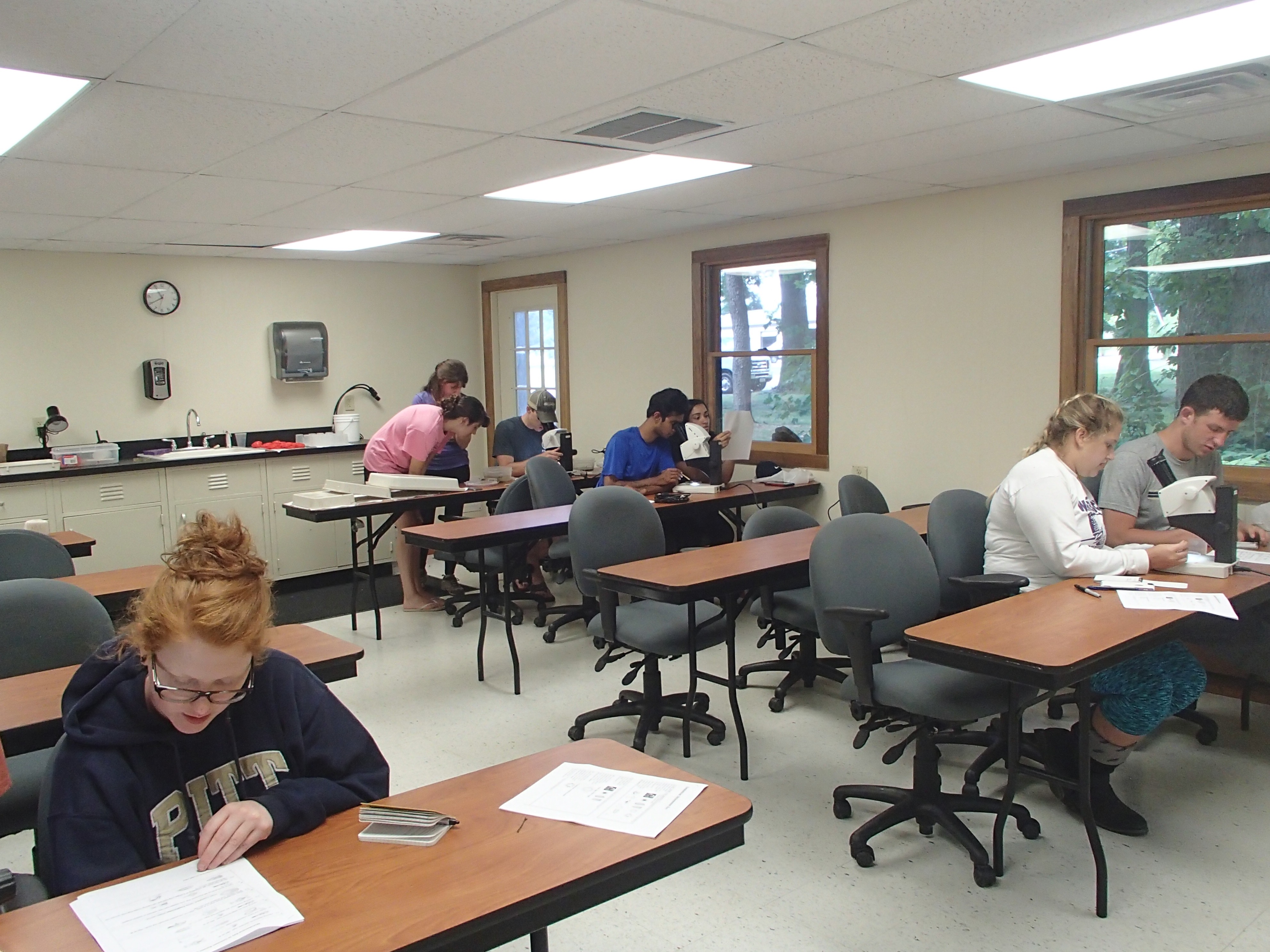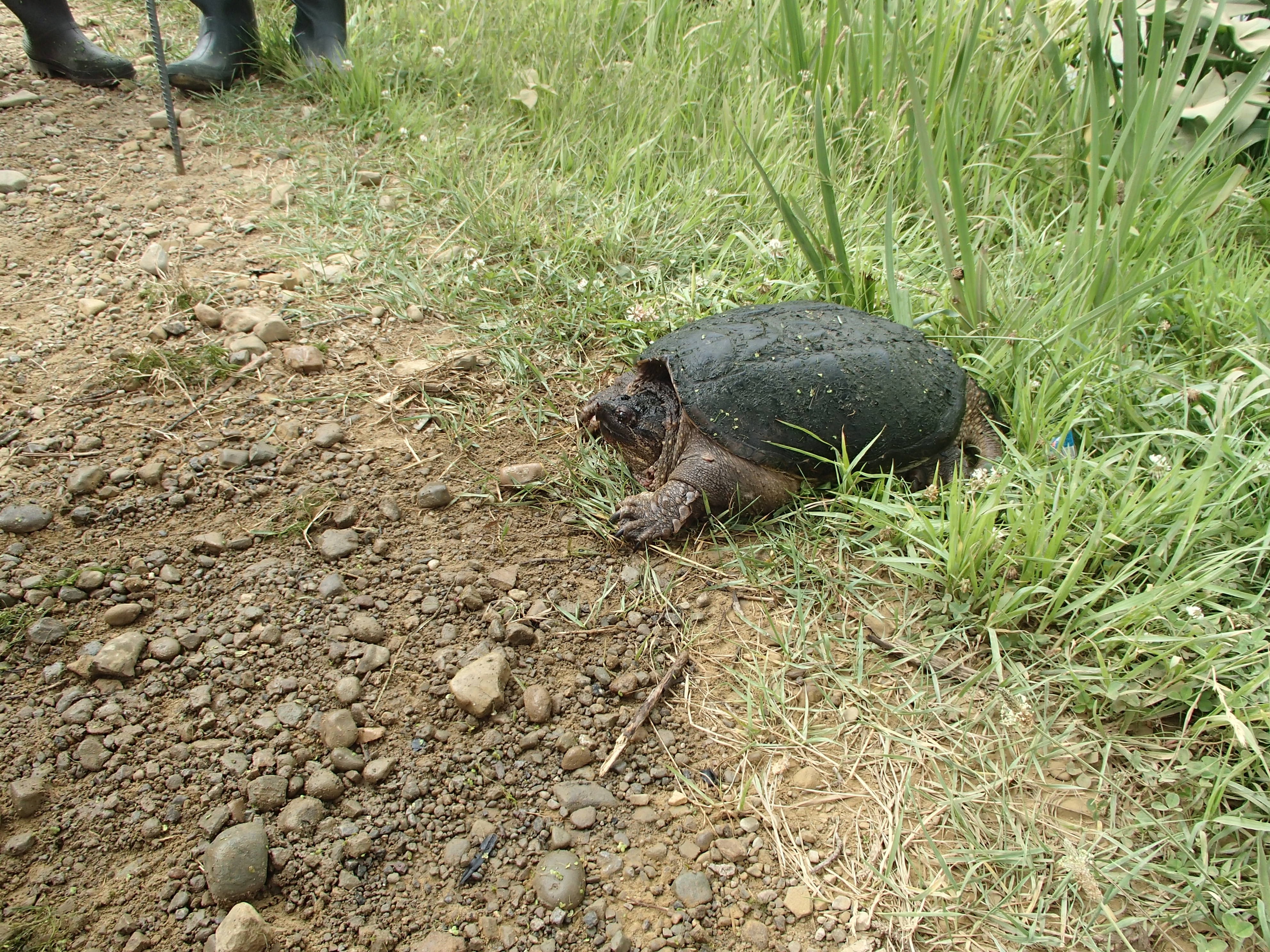2 August 2016
Taking SciComm to the field
Posted by Shane Hanlon

Teaching students about diseases in turtles. Phtoto credit – Aimee McLaughlin
By Shane M Hanlon
“Alright, start heading back up the stream. We’re going to swab these guys and then head out.” Those were my words to my disease ecology class one day when we were out catching salamanders to determine if they were infected with a specific amphibian disease, Batrachochytrium dendrobatidis, a chytrid fungus causing all sorts of problems for amphibs. An hour after I uttered those words I got a call from my TA.
“Hey Shane…um, just calling to see where you’re at.”
I’m lost.
“Heeeeey Aimee. Um, I got a little turned around but I think I know where I’m at. Don’t panic, I’ll be back soon.”
Another ½ hour journey and I finally made my way back to the group. This was day 2 of class and perhaps not the best first(ish) impression. Or, maybe it was – showing the class that I’m human and relatable (and evidently terrible with directions as we would get lost trying to find a giant wildlife refuge in the coming weeks). But even with these setbacks and embarrassing events, I was fortunate to be in this position in the first place.

Students examining aquatic invertebrates in the lab. Photo credit- Aimee McLaughlin
On this blog, we regularly feature researchers who dedicate much of their free time to science communication, outreach, and/or policy. Well I’m the opposite, a scicomm professional who took time to teach.
We in the scicomm field are constantly trying to learn and develop new ways to get science “out there”. In Sharing Science our goal is less to directly serve as mediators between scientists and general audiences and more to train scientists to be their own disseminators. We’re fortunate enough to work with some amazing scientists from diverse personal and professional backgrounds across many career stages. Our goal is to not only provide fellow scientists the skills and resources necessary to distill and disseminate their science but also to develop long-lasting relationships with us where we can learn from each other. But at the end of the day, we’re in an office in DC and most of our members are spread out across the country and around the world. So, having the opportunity to be immersed in academia again, albeit for a blink of time, was an opportunity to really talk to folks about their views on scicomm. It was also a selfish endeavor.
I’m a field ecologist by training. I traded in my waders for a suit (the current office is a little more casual) a few years ago and am happy with that decision. But there is still a pull on me to be out in the field and part of higher education. So, for three weeks each summer I teach a disease ecology class for the University of Pittsburgh at their Pymatuning Laboratory of Ecology. It’s intensive, immersive, and amazing. I am not the traditional instructor there – everyone else are academic teachers/researchers. This intrigues not only the undergraduates that I’m teaching, but also the grad students, postdocs, and professors who are teaching and performing research at the station. My original selfish endeavor turned into an opportunity to talk with folks about the value of scicomm, outreach, and policy engagement. And to catch turtles. We caught a lot of turtles.

An especially large and ornery snapping turtle that forced me to cut open a perfectly good hoop net. Photo credit- Aimee McLaughlin
I don’t think that scicomm and policy professionals need to get back to an active role in academia to do amazing work. But, for me at least, it sure didn’t hurt. I relished this unique opportunity to not only get my hands dirty again (literally), but also spread the message that spreading one’s scientific message is something that every scientist should be able to do.
–Shane M Hanlon is an AGU Sharing Science Specialist and adjunct instructor for the University of Pittsburgh at the Pymatuning Laboratory of Ecology


 The Plainspoken Scientist is the science communication blog of AGU’s Sharing Science program. With this blog, we wish to showcase creative and effective science communication via multiple mediums and modes.
The Plainspoken Scientist is the science communication blog of AGU’s Sharing Science program. With this blog, we wish to showcase creative and effective science communication via multiple mediums and modes.